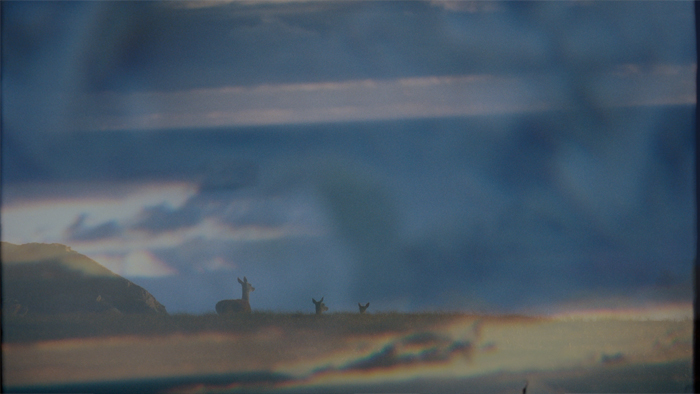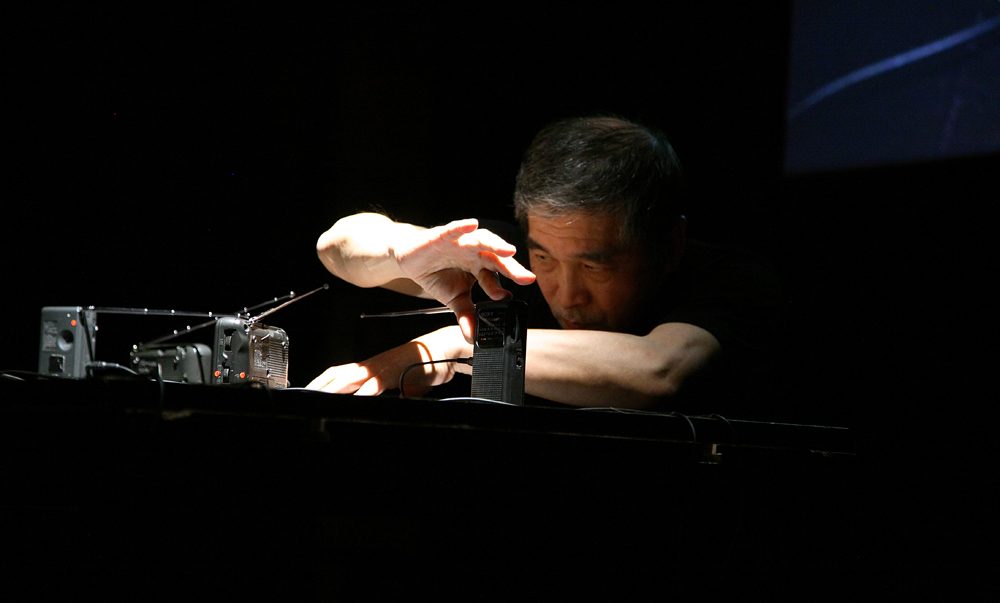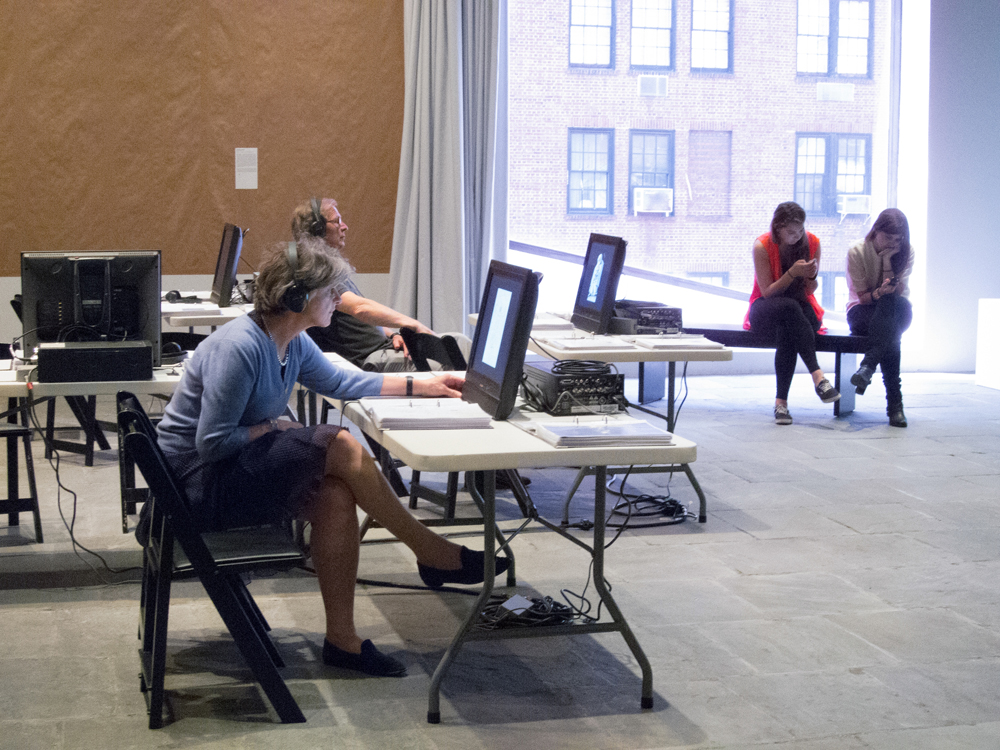
BARRUNTO
Emilia Beatriz
A speculative narrative film informed by poetry and theories of quantum entanglement across diasporic distance. An intimate exploration of grief and resistance in shifting landscapes of loss, from the streets to the bed.
Arika have been creating events since 2001. The Archive is space to share the documentation of our work, over 600 events from the past 20 years. Browse the archive by event, artists and collections, explore using theme pairs, or use the index for a comprehensive overview.

A speculative narrative film informed by poetry and theories of quantum entanglement across diasporic distance. An intimate exploration of grief and resistance in shifting landscapes of loss, from the streets to the bed.

Performing with hand built radio transmitters, which react to interference in the atmosphere and the electrical impedance of his hands, his radio art is a form of social practice; a statement in opposition to mass media.

Personal Spaces: inversion of a territorial bell, confusing the realms between rehearsal and performance, public and private space.

Politicised fan-fiction chronicling working class gay urban space and fantasy.

Conceived of as a dual publication, video cassette and booklet, to be presented as an installation. The content of the videotape is the artist watching television.

No Wave, damaged garage jams and crazed instant vocal shrieks.

Noise music for the eyes: projectors turned into instruments, B&W film loops into a thrumming riot of colour, motion and sound.

Sachiko’s very simple, pure sine tones and structures. Otomo on double pianos. Filament’s music isn’t composed and it isn’t improvised: it’s a hybrid of the two.

Underground movement legend boychild hosts this workshop—on improvisation, cosmetics, movement and lip-sync.

A temporary archive and research space tracing the ways in which sound and audition move through everyday life.
A talk entitled ‘The Conquest of the Universe’: which delves into the connections between the underground filmmakers and musicians in New York in the early 1960s

How do you know what you want? Should freedom be doing what you ought, not doing what you want? How might a philosopher and artist turn this thinking into an enabling condition in the context of noise and improvisation?